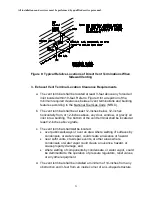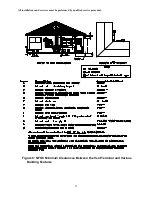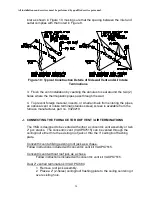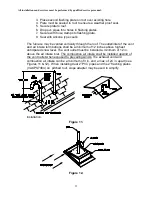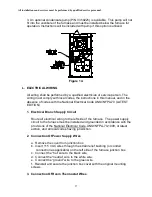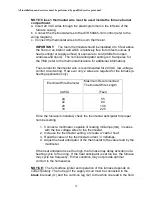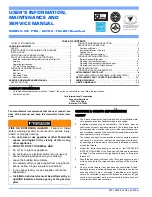
All installations and services must be performed by qualified service personnel.
35
B. INITIAL START UP:
This furnace does not have a pilot. It is equipped with a hot surface igniter which
automatically lights the burner. Do not attempt to light the burner by hand. Check
the following items before the initial start-up.
1. Check all wiring for loose connections and proper hook up.
2. Leak test gas piping connections.
3. Check all tubing to the pressure switch and drains to make sure they are
connected firmly at all their connection points.
4. Check flue pipe, combustion air inlet and all pvc connections for tightness and
to make sure there is no blockage.
5. Make sure air filter is in place.
6. Make sure the outside vent and air intakes are installed according to
instructions and that they are free from blockage.
7. Make sure that the drain trap is properly connected to the furnace and to the
drain system.
OPERATING INSTRUCTIONS:
: Turn off power to furnace before it is placed into service. The
gas piping system must have been leak tested by a qualified heating
contractor in accordance with State, Local and National Codes including
the National Fuel Gas Code NFPA 54/ANSI-Z233.1 (Latest Edition).
: It may be necessary to purge the air out of the gas line for initial
start-up of the furnace after installation. This should be done by a qualified
heating contractor. If excessive gas escapes when purging the gas supply
at the union, allow the area to ventilate for at least 15 minutes before
attempting to start the furnace. LP gas is especially dangerous because the
specific gravity of LP gas allows it to accumulate at floor level at a
dangerous concentration.
: Heat exchanger oil will burn off on initial firing creating an
unpleasant odor. To prevent this odor from occurring more than once, it is
suggested that:
1. A window(s) be opened.
2. The thermostat set at highest setting.
3. The furnace remain running as noted above for 15 minutes or until odor
has dissipated.

